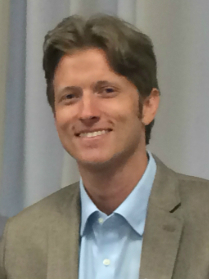
Ph.D., Department of HistoryFlorida State University
In Search of the Social Impulse: Science and Conciliation during the Interwar Years, 1919-1939
According to the prevailing historiographical opinion, the early twentieth century was an unremarkable period in the history of evolutionary thought. Commentators routinely dismiss biologists from this time as naïve and even lazy, insisting that they offered little of lasting value to the theoretical foundations of evolutionary biology. My research suggests otherwise. The historical record reveals that early-twentieth-century biologists were neither naïve nor lazy, and that they drew inspiration from many of the same fundamental riddles that continue to motivate biological research today. In particular, they wanted to know why any organism would ever assist another when doing so compromised its autonomy and decreased its fitness. Admittedly, their research may have lacked focus during the first two decades of the twentieth century, but everything changed following the Great War. In response to the most destructive war in the history of the planet, biologists from all around the world began studying the scientific principle of cooperation with increased urgency. Although these biologists often studied organisms that were not only far removed from one another in a phylogenetic sense, but also located at different “levels” of hierarchical organization, they nevertheless reported the exact same phenomenon: collections of otherwise autonomous individuals integrating with one another to produce individuals of a higher order still. They invariably concluded that cooperation had influenced the course of evolution just as much as competition, and that this tendency toward cohesion sometimes resulted in new individuals at new levels of the biological hierarchy. Outside the profession, philosophers, statesmen, and even cosmologists seized upon the idea that living things were inherently sociogenic. The theory was especially popular in all the places recently scarred by war, including Africa, Asia, Europe, and North America. It was a dizzying time, perhaps the most holistic in the entire history of science, and it was fueled by the heady conviction that nature favored harmony no less than conflict. And then, right when biologists felt certain they were on the precipice of grasping some universal truth about the origin of the social impulse, the whole world descended back into the hellish depths of war. Read the research report here.